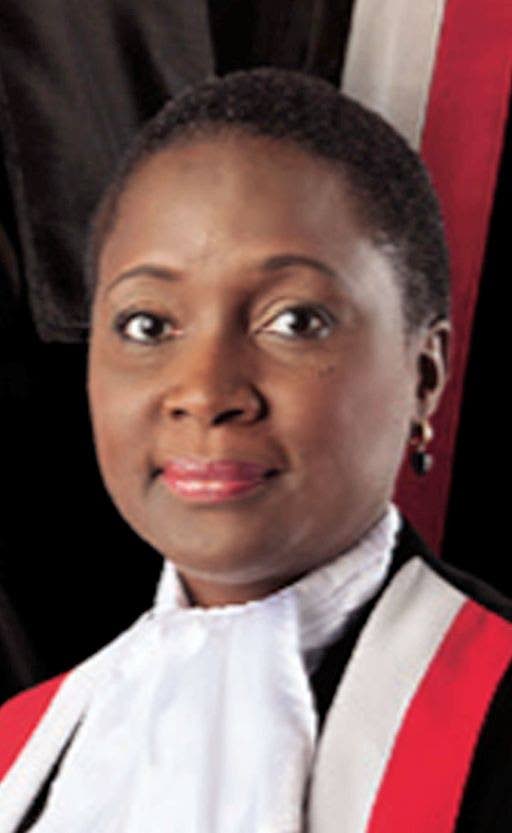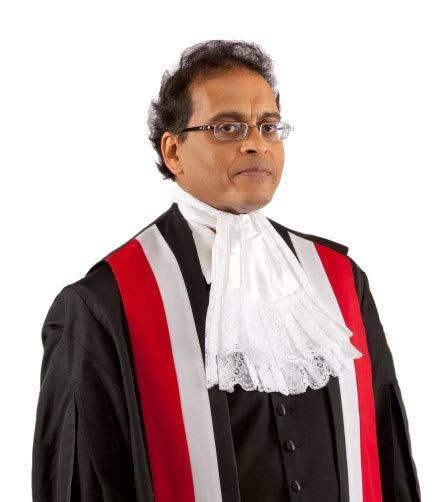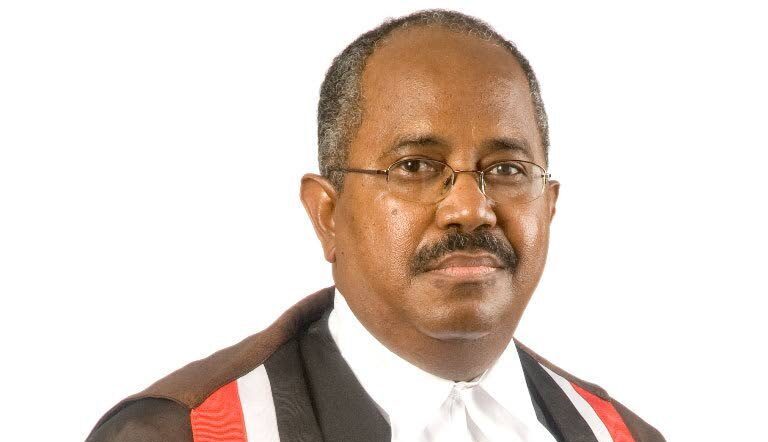 Justice of Appeal Maria Wilson -
Justice of Appeal Maria Wilson - THE Court of Appeal has ruled that the destruction of a protest camp by the army in 2012 breached the constitutional rights of seven members of the Highway Reroute Movement (HRM).
The HRM's leader, Dr Wayne Kublalsingh, had challenged the state’s continuation of a segment of the Solomon Hochoy Highway extension between Debe and Mon Desir. The HRM said state officials had given them verbal assurances that the project would pause for technical review and that these representations created “legitimate expectations.”
After Kublalsingh and the HRM's victory at the High Court in 2020, the Attorney General’s Office appealed to the Court of Appeal.
However, the panel of Justices of Appeal Nolan Bereaux, Peter Rajkumar and Maria Wilson found favour with some of the High Court's findings while dismissing others and replacing its orders with their own.
In the ruling, the judges found no clear, unqualified promises were made.
“The evidence did not support any clear and unambiguous representations in the terms alleged, which were necessary to found the alleged legitimate expectations.”
As a result, the court rejected the trial judge’s ruling that constitutional rights related to property and private life were breached on this basis.
Rajkumar, who wrote the unanimous decision delivered on July 31, did uphold the finding that the protest camp’s demolition was unconstitutional. He ruled that using the army to remove peaceful protesters violated the right to the protection of the law and due process.
 Justice of Appeal Peter Rajkumar -
Justice of Appeal Peter Rajkumar -
“The involvement of the army and the manner in which it was invoked in the circumstances raised serious concerns and gave rise to a breach of the right to the protection of the law. “That is because that invocation was without any lawful authority or legal justification and was an arbitrary exercise of power.
“The respondents were entitled to the protection of the law because the law protected them from the unlawful invocation and activation of the army at the request of the Minister of National Security. It was a serious breach of the Constitution, unprecedented in recent times.”
The court also held that the trial judge erred by finding that there was a breach of the right to freedom of expression.
“The demolition of the camp did not prevent the exercise of the right to express political views or freedom of expression or otherwise. The existence of the protest camp was not integral to the exercise of those rights. Neither was the right to freedom of assembly infringed by the removal of the camp. Those rights could have been exercised without restriction otherwise and elsewhere.”
The judges also found the state did not prove the camp obstructed highway works or presented danger.
As a result, the state was ordered to pay $350,000 in damages for constitutional breaches, $50,000 to Kublalsingh for assault and battery, and $15,000 to one of the movement's members, Elizabeth Rambharose, for assault.
The court noted the camp was likely built on land managed by the National Agricultural Marketing and Development Corporation (Namdevco), not on highway land, and the state failed to justify its “self-help” removal.
The ruling ends a long legal battle over the highway extension.
On October 26, 2020, Justice James Aboud ruled in favour of Kublalsingh and the HRM in an almost decade-long protest over the highway extension.
Aboud upheld the group’s claim that it had a legitimate expectation the government would have fairly considered its technical and environmental concerns before proceeding with the highway. That expectation, the judge said, was based on public assurances given by several senior government officials, including then prime minister Kamla Persad-Bissessar.
Instead, Aboud found the consultation process to be deeply flawed and described the government’s actions as “a shocking betrayal” of public trust and natural justice.
Central to the case were two reports commissioned during widespread public protest and two hunger strikes by Kublalsingh in 2012 and 2014.
The first, a short document prepared by the National Infrastructure Development Company (Nidco), was dismissed by the court as “a travesty and a sham.” Justice Aboud criticised the ten-page document for lacking independence and objectivity, saying it simply restated government policy without addressing the HRM’s concerns.
 Acting Chief Justice Nolan Bereaux. -
Acting Chief Justice Nolan Bereaux. -
He also condemned the Ministry of Works for inviting feedback from HRM at a time when the report had already been finalised and not disclosed to them, calling the process “a charade” that breached every rule of natural justice.
The second report, prepared by the Highway Review Committee (HRC) led by former Independent senator Dr James Armstrong, recommended halting the project to allow further technical evaluation. That recommendation, too, was ignored.
“Having spent over $700,000 for the HRC Report, it is unconscionable that the Government should have decided to entirely disregard its recommendations,” Aboud wrote.
As part of the lawsuit, the group had also challenged the destruction of its protest camp at Debe in 2012. The High Court declared the actions of then minister of national security Jack Warner and the regiment illegal.
Kublalsingh and the HRM also challenged the PNM government’s decision to resume construction of the highway after work had stalled due to financial issues and the exit of contractor OAS Construtora.
In that matter, Justice Ricky Rahim ruled that while the group had a legitimate expectation of consultation before work resumed, the state could not be held liable for breaching it, given the high public interest in completing the project and safeguarding already-built infrastructure.
Kublalsingh and the HRM were represented by Fyard Hosein, SC, Rishi Dass, SC, and Anil Maraj.
The State’s legal team included Russell Martineau, SC, Tamara Toolsie, Rachel LeBlanc, M Maharaj, and Brent James.

 6 months ago
21
6 months ago
21
 English (US) ·
English (US) ·